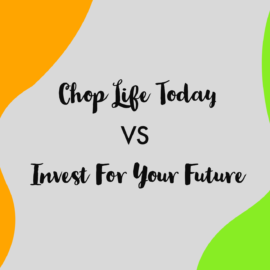In the world of investment, compounding is a great tool. Simply put, compound interest is your interest earning interest. For instance, if you keep investing an amount of money periodically, maybe in mutual funds, this money, the principal, earns interest. Compounding it means this interest is added to the principal and the next interest accrues on the added previous value. This continues on and on and you’d be surprised at how much you’ve accumulated over a period of time.
So, here’s Paul. He visits an asset management firm to invest in her money market products. He has identified the product that will well-suit his investment goal. However, he has the options to receive his interest each quarter or reinvest his interest (this is where compounding comes in).
If he invests N100,000 for five years at 13% per annum. For his pay-out option each quarter, the total returns over the five years will be N65,000
For his interest re-invent option, his total returns at the end of the five years will be N89,583.79
The difference is obviously clear. Imagine applying this principle on bigger investments.
If Paul does not have urgent needs for his interest funds, it’s better he re-invests to take advantage of the tool of compunding.
For help on how to calculate compound interest, here’s a formula:
Fv= Pv (1+ r/m)nm
Where Fv= Future value of your investment
Pv= Present value
r= interest rate
n= no of years
m=no of times of in a year when interest is paid.
With this formula, you get the Future value of your investment. You can get your interest value by deducting your Present value from your Future value.
Now that you know what compounding is, utilize it to get the best from your investments.
We believe in you!
To your financial independence and freedom


